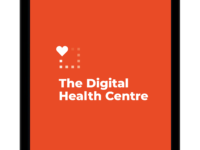The Center for Hybrid Intelligence (CHI) has with partners such as UN’s AI4Good and the Danish People Climate Summit piloted a new AI powered game, “Crea.visions,” which allows the general public to collaboratively create and reflect on images of possible futures. Such accessible crowdsourcing of the concerns and solutions of the general public on both global and local complex socio-scientific problems could form a cornerstone in participatory democracy in the digital age.
Case Study Library
Where innovations are collected and shared to disseminate and replicate good ideas

Innovations:
0
This website, as well as any data and map included herein, are without prejudice to the status of or sovereignty over any territory, to the delimitation of international frontiers and boundaries and to the name of any territory, city or area.
The Innovation Barometer is the world’s first official statistics on Public Sector Innovation (PSI), now implemented in 5 countries, providing innovators and decision makers with systematic knowledge of what thousands of innovators 'actually do’. The barometer advances PSI as a tool for solving societal problems and is used in practice for: inspiring innovation work, policymaking, strategising, executive leadership development, teaching, research and consultancy services.
The project improves quality of life for people with a chronical illness by developing and integrating digital solutions in the education of patients. It supplements the physical training but replaces the traditional education in a health centre and offers patients a far more flexible solution. Patients can participate in webinars from home and chat with healthcare professionals and other patients. The use of digital solutions results in both resource optimization and patient empowerment.
“TAKO – Moms” is the result of a project with the goal of developing a Minimum Viable Product to help tax administration service workers with customer service. TAKO is an online overview of all customers, which was created by the service workers themselves in collaboration with programmers. This process resulted in both exceptional improvements in the payment of VAT’s as well as large evolutions in the skills of the workers, without launching a high-cost project.
CORO, Co-lab is the result of an ambitious vision of creating innovative collaborations. The local innovation platform creates new sustainable solutions to complex societal challenges. It takes place in cross-sectorial cooperation’s between public organizations, academia, civil society and businesses across industries. Through the activities, new sustainable scalable solutions are developed, using the entire area of Roskilde as a unique real-life test platform with demonstration facilities.
Highway Interchanges are often highly congested. Solving it with traditional measures is costly. With the first Diverging Diamond Interchange (DDI) in Europe, road users change lanes when passing over the highway with fewer conflict points, enabling more capacity, improved safety and less congestion. The Danish DDI has a high return on investment. It was brought to life by an open innovation collaboration between the Danish Road Directorate and the Missouri Department of Transportation.
Innovative Complaint Management is changing an organizations understanding of complaints from looking at complaints as errors and faults to look at complaints as a potential for new solution to change the service of the municipality, and appreciatively receive complaints as a learning organization.
The system in the Kolding Municipality in charge of providing medical benefits underwent a comprehensive design driven innovation process aiming for better and more efficient service in 2015. Min Plan gives citizens an intuitive understanding of the medical benefit system, just as it empowers them to take responsibility for their own case, making it a successful journey through the system. The results currently show a 38% reduction in complains from citizens and 3 million euro saved a year.


